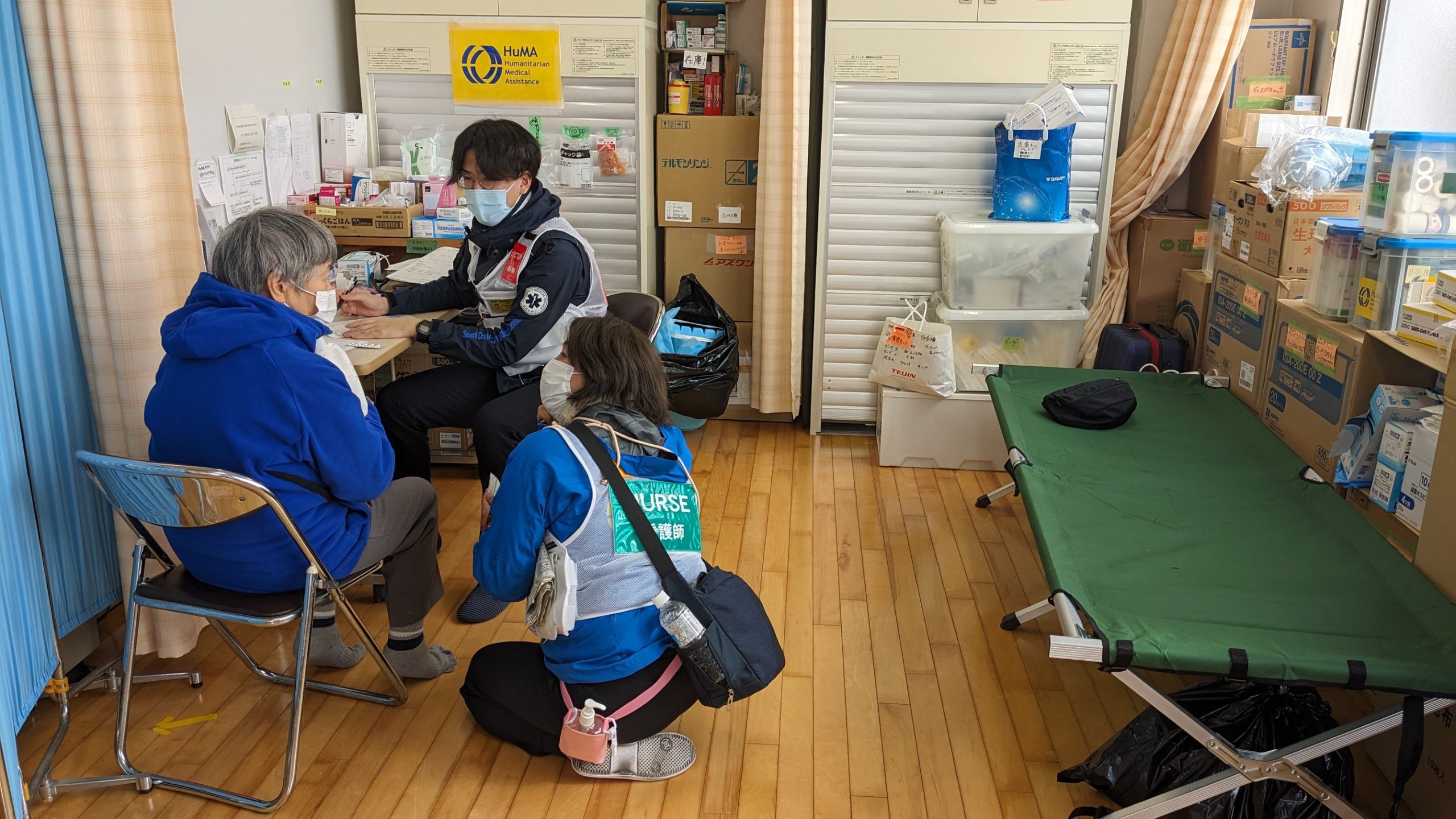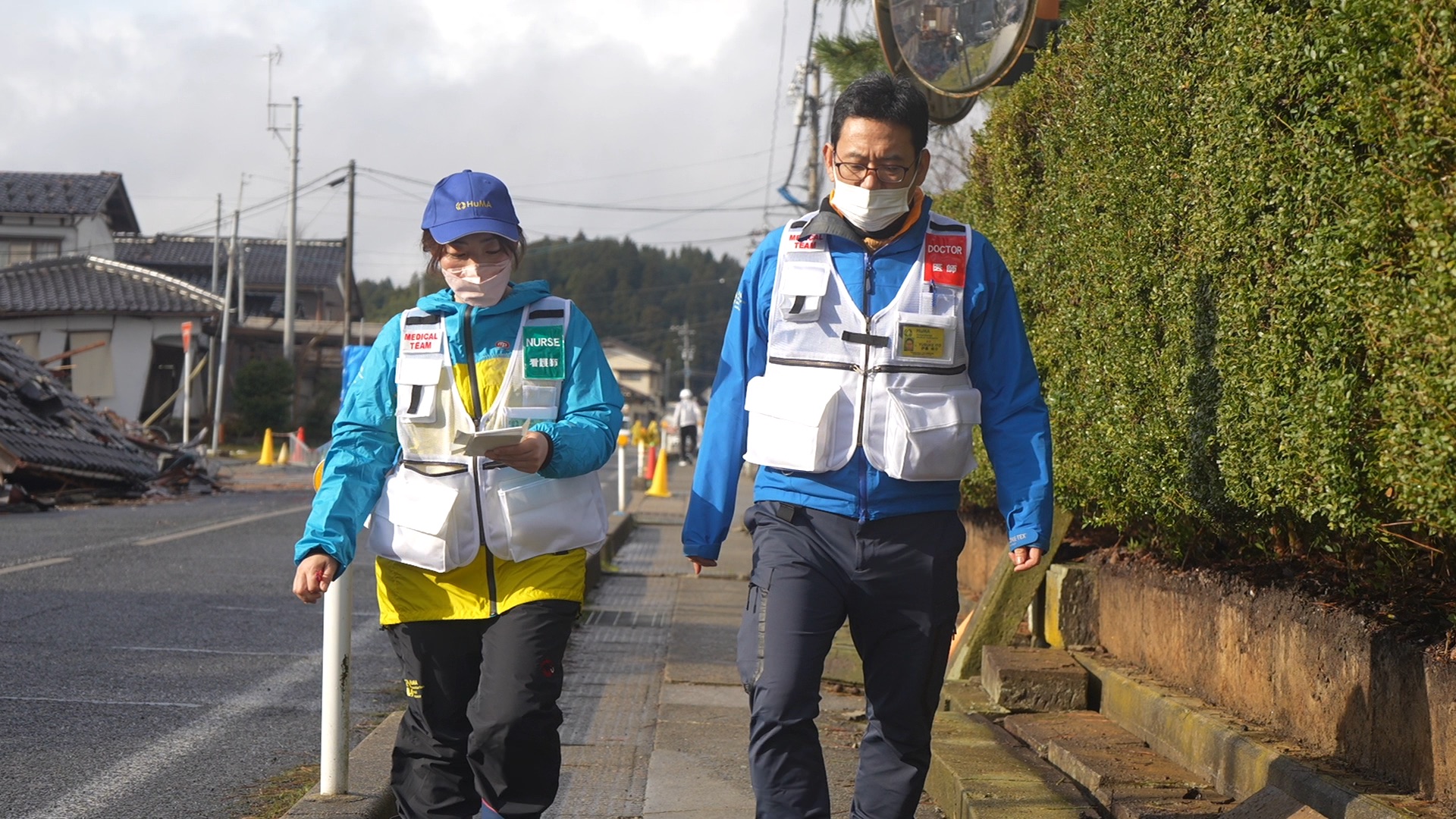Today at the relief station that HuMA is in charge of, doctors went around talking to people, which led to the examination of those who were not feeling well. However, many of the visitors to the relief center said that they were told by their neighbors to go there, and the situation emerged that those who are evacuated alone or have little family support have difficulty reaching a doctor.
We would like to continue to make rounds and talk to them, as this is an effective way to discover potential patients. Also, some people mistakenly believe that there is a charge for medical treatment, and we need to let them know that there is no charge for medical treatment for now.
We also do mobile clinics. While visiting one of our clinics, we were approached by a local volunteer who was passing by. It turned out that he had been holding on to a sore spot under the rubble for a long time. At the other facility, the number of people had decreased since our last visit, and the elderly patients were alone during the day; the HuMA nurse took the time to listen to them, and the patients came outside to see us off.
Although the number of people at each of our sites is decreasing due to secondary evacuation and medical needs are dropping, we will continue to reach out to those we visit and provide support to those who are isolated.
Restoring Vibrancy: The Wishes of Survivors
From conversations between HuMA nurses and survivors, we have received earnest comments from elderly people who were healthy before the disaster but have become bedridden after the disaster. They are deeply grateful to the medical staff who help those who have become unwell, and as their next request, they eagerly awaited the return of their elders to the way they used to be when they were healthy.
Although they have a sincere desire to take the hands of the bedridden people and go outside with them, and want them to move as they did before, the survivors have so many things they have to do on their own that it is difficult for them to do so. For this reason, they have expressed their earnest desire for us to act together with them and support them. And they said, “I am sorry, I am sorry to say this, I wish I could, but I can’t.” It reflected the complicated feelings of the survivors and the harshness of the reality.
We felt that we were being called upon to be emotional support for the survivors and to be partners in walking toward the future together with them.



